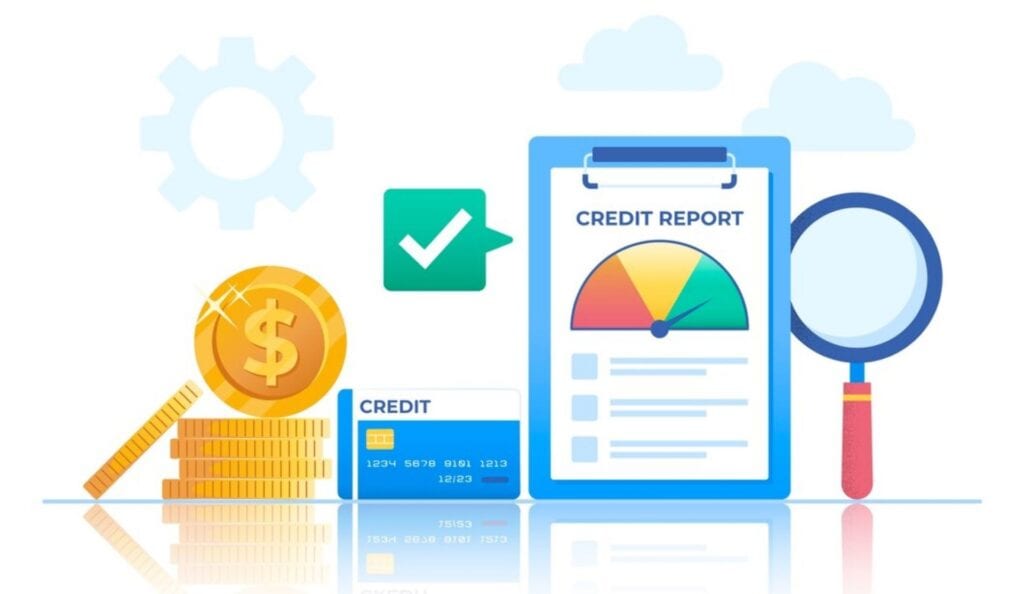
By admin February 6, 2025
A healthy credit profile is important for the long-term sustenance of any business. A poor business credit record can serve as an obstacle to potential funding opportunities to acquire small business loans and credit cards. Fortunately, it’s never too late to turn things around, having a strong business credit profile is essential for accessing better merchant services and financing opportunities and positively turning around one credit scenario can only be welcomed. Business credit profiles speak volumes about the possibility of enhanced merchant services and financing options. Additionally, good credit will help in securing loans, negotiating terms with suppliers, and potentially attracting willing partners/investors.
Understanding Business Credit

Business credit assesses a company’s creditworthiness. It measures a company’s ability to repay its debts and exists separately from private credit. Business credit is primarily affected by payment history, credit utilization, length of credit history, and credit type. Major business credit agencies such as Dun & Bradstreet, Experian Business, and Equifax Business produce credit reports that lenders and other businesses use to evaluate the financial health of the business.
Having good business credit is vital to a company’s financial stability and rests on its creditworthiness and financial history. Lenders assess creditworthiness using different perspectives, including factors such as payment performance, level of indebtedness, and industry risk parameters.
Insofar as business credit is concerned, exercising financial to managerial prudence and intelligently controlled debt management are preconditions for establishing strong credit. Strong credit truly facilitates obtaining loans on better terms and enhances business credibility in the eyes of lenders.
Importance of Business Credit

Establishing and maintaining good business credit is important for the success and growth of any company. This credit line has big advantages such as easy financing access, which helps development and operations. Good credit assures the company of good vendor relationships, whereby it can negotiate terms and obtain better deals.
Additionally, strong business credit can result in the formation of advantageous partnerships and collaborations that become the best opportunities for expansion. A firm in good credit status usually pays lesser premiums for insurance, thus realizing significant cost savings. Therefore, a good credit position gives an edge to these businesses in competition.
The monitoring of financial health, maintaining timely payments, intelligent debt management, and building vendor relationships are crucial to reap the benefits offered by good business credit.
What Is the Ideal Business Credit Score?

Companies with a low credit score may face challenges in obtaining funding, such as interest rates that soar higher or repayment conditions that become more stringent. It is important to note that each industry has its creditworthiness parameters. Therefore, it is wise to make a habit of regularly checking ratings from credible sources in order to keep track of the company’s creditworthiness.
A corporate credit evaluation is used by lenders to indicate the creditworthiness of companies scoring between 0 and 100. An entity between 75 and 100 is financially healthy. A good credit score is imperative, as it is a symbol of reliability and trustworthiness, which could allow for improved financing possibilities such as lower interest rates, higher credit lines, and favorable conditions from suppliers. Conversely, to keep their credit score high, there are some things a business will have to do regularly: pay its bills on time, control debt, build relationships with vendors, and limit inquiries into new credit lines among others.
Methods for Rebuilding Business Credit
Obtaining a Business Credit Report

Engaging a corporate credit repair company may look like an option for increasing a business credit score, but this is often more beneficial if done solo. While there are legitimate credit repair firms, the industry is rife with unscrupulousness, so the prudent advice would be to keep away from such services altogether. Even some legit companies might cost too much, and the majority of them offer services that they may well do by themselves.
The first thing to restore a business credit is to obtain a copy of the business credit report. This report contains vital information utilized in determining the credit ratings, such as credit history, and tradelines that are outstanding, and this report may also give some idea of the financial health. Primarily, these reports are for creditors, but they would be useful from the business point of view, even for small business owners. They help identify growth areas and false statements that may help bring down the business score.
Getting a cleared business credit report is important to fully understand that companies do not, unlike humans, receive yearly credit reports for free under the Fair Credit Reporting Act (FCRA), so it is most likely that they have to pay to acquire the business credit data. Dun & Bradstreet (D&B), Experian Business, and Equifax Business are the three major business credit bureaus that should be checked up on.
Paying Bills on Time

For establishing a good business credit, it is important to pay the invoices and bills on time. A due-date reminder can go a long way toward ensuring timely payment. In particular, these payments should take priority to avoid fines and even bad credit consequences. A consistent payment history would boost business credit scores and enhance their reputation among lenders. On the other hand, being financially responsible and communicating with creditors in terms of any financial difficulties will prove useful.
Excuses aside, keeping up with the timetable is important. For the most part, credit restoration demands timely payment of the minimum amount due each month to keep anything from happening that could overburden the business with more debt and, therefore, result in late payments.
While the benchmark factors that govern commercial credit scores differ in many ways from those that govern consumer credit scores, what remains common is the overriding necessity to pay bills on time. Any late payment will inevitably drop the rating of the creditworthiness.
Meanwhile maintaining productive cash flows helps to keep bills paid, and understanding the credit practices of good businesses also finds roots in these fundamentals. Many business owners may fail their responsibilities from time to time due to a lack of cash flow, not forgetting. Therefore, it is always better to have enough working capital allowing to offset liabilities for a couple of months. Automating the payments could certainly solve disorganization-related problems in such cases. This allows the business to pay full attention to maintaining cash flow, knowing that the payments will be in on time.
Paying off any Past-Due Judgments and Liens

There are some complications regarding business credit scores due to the multitude of developing factors they choose to apply. Negative public records, such as liens or judgments, usually serve as big red flags for creditors regarding any scoring model in use. Such records reflect potential financial trouble for the business, leading to stringent collection actions that further hinder the business’s ability to pay off debts.
These negative events can pose considerable obstacles to financing approval. Concentrate efforts on setting any pending liens or judgments as the top priority to build better business credits. Where a full pay-off becomes unviable, negotiations could also be worked out with either the creditor or the collection agency. But always go back and protect oneself by ensuring that anything agreed or settled on has been committed to writing before forwarding any payment.
Paying Down Revolving Credit Debt
The foremost duty in compensating for and building business credit is to reduce the use of revolving credit or eliminate it altogether. Consider paying off high-interest credit cards first, and then think about consolidating the debts under one loan or credit line at a lower interest rate. Speaking to the creditors about better offers for the repayment of existing debts or a reduction of the total amount owed altogether, and drafting an agreeable payment schedule.
In all these activities, good financial management should be practiced by creating a proper budget, paying bills promptly, cutting down on frivolous expenditures, and channeling any extra income toward debt repayment. It is crucial to remember that getting back on will take time and work, so it is wise to be patient.
Establishing Trade Lines with Vendors
Getting in touch with vendors who report to credit agencies for business purposes will substantially enhance the business credit history. Establish trade lines with suppliers and make payments on time. Good payment histories with these businesses will help in repairing the credit rating with time. In trying to repair the business credit, it becomes necessary to foster good relationships with trustworthy vendors who report their payment history to credit agencies. Approach vendors in a business manner, solicit recommendations, and work up to larger purchases. Negotiate favorable terms and keep communication lines open. Through relationship-building and trustworthiness, and will see consistent improvement in the overall credit profile.
Maintaining a Low Credit Use Ratio
For keeping the business credit in good shape, it is important to make sure to keep the credit utilization low by paying off any balances completely every month only using a small part of the available credit, and asking for higher credit limits when needed. And, keeping an eye on the credit accounts setting achievable goals for reducing the debt, and mixing things up by applying for new credit lines with different banks to vendors. Mixing things up by applying for new credit lines with different banks or vendors.
Initiating new Accounts

To build a strong business credit history, it is necessary to open new accounts for the business and show responsible account management. Business credit accounts, or tradelines, can either be vendor tradelines or financial ones. Vendor tradelines are established with vendors that may provide extended payment terms and net 30 accounts, while financial tradelines are extended by lenders like online platforms, and banks, and may include small business loans, business credit cards, and revolving credit lines. If business credit is still in an early stage after addressing any past issues, vendor tradelines are the ones to work with. If the credit score has improved greatly, financial tradelines are the way to go.
A good business credit can help get some tradelines, but they typically require personal guarantees that would make personal assets vulnerable to collection by creditors in cases of debt default. When selecting tradelines, ensure to consider the credit bureaus it reports to since consumer creditors usually report to all three. In this case, do aim for at least three active credit accounts with each bureau.
Fixing Business Credit is not Hard
Business credit repair is critical to the long-term success and financial stability of any business despite being a tough journey. The gravity of the credit problem will deeply affect how easy it is to repair that credit. Business credit repair is a slow and steady process. It requires a lot of time; nothing happens overnight.
Hiring financial advisors, credit repair experts, or attorneys is always advisable and can often make the repair process easier. It is also essential to be flexible about any strategic choice involving internal financial management and debt handling. Effective credit repair requires constant application and supervision. With the right focus, a strategy, and the right kind of help, damaged credit can be repaired over time to benefit the future success of the business.
Conclusion
Business credit and its enhancement are important for accessing better merchant services and financing options and by, using some of the tips provided in this guide, for example, checking business credit reports regularly, while paying bills on time, reducing debt, setting up trade lines, and maintaining a good mix of credit types can better a business’s credit standing.
A good credit report can lead to lower interest rates, better terms with suppliers, expanded financing solutions, and strong market reputation expectations from business credit. Having an eye for detail, reasonable planning, and due diligence will bring success and growth regarding the business finances.
